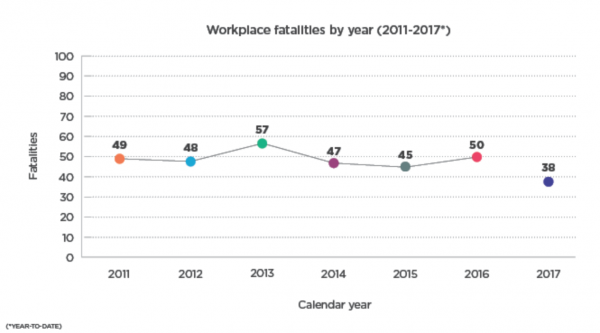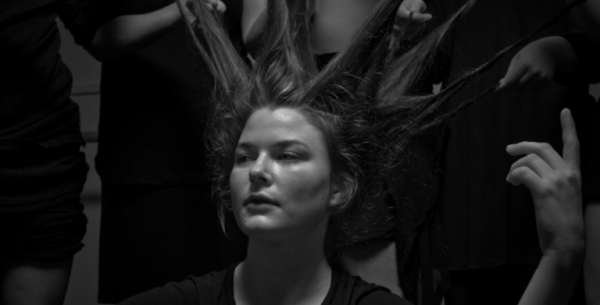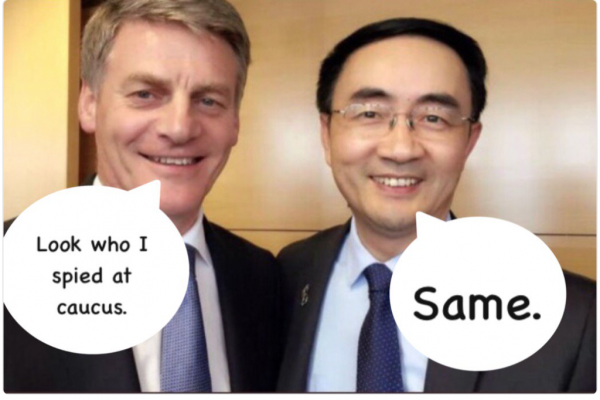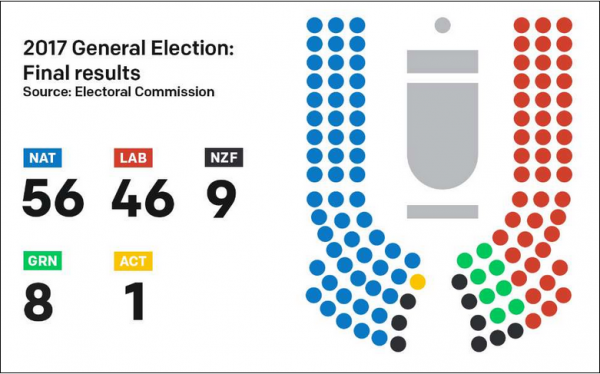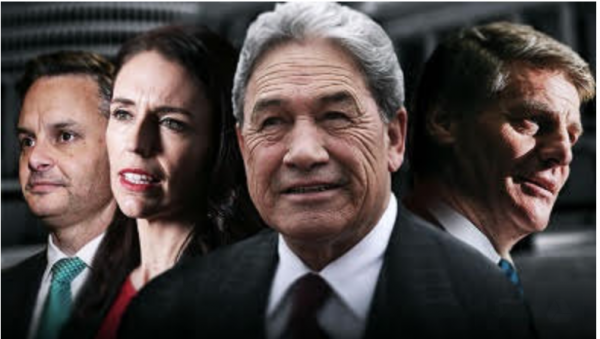
Many moons ago – back when the notion of replacing Andrew Little with Jacinda Ardern was the sort of pie-in-the-sky idea dismissed by almost all serious commentators as almost assuredly fatal to both her party and her person, rather than some form of titanic/cthonic masterstroke capable of apparently singlehandedly reshaping the political landscape upon a whim – I sat down to pen a piece entitled “The Golden Path”.
The focus of this article was to be what I, and a number of others inside NZF, viewed as the ‘best’ course of action for the Party if we genuinely wished to survive the 2017 and 2020 General Elections and make it on to that mythical and much-hypothesized Life After Winston … without going the way of pretty much every other ‘smaller’ party over the course of the MMP age.
Foremost among the insights amidst said invective was the concept that in fairly direct contravention of what seemingly everybody else both inside the Party and out was saying about how to ensure NZF’s long-term survivability [i.e. shack up in coalition with one or other of the ‘major’ parties, pick up a few Ministerial portfolios, show the electorate how good we could do in Government, and then hope against all available evidence that this would somehow NOT lead to us collapsing towards either the end of the Term or the Government], if New Zealand First genuinely wished to maintain its existence – and, perhaps rather more aspirationally, its then-seeming-inexorable ascent towards displacing Labour for ‘major party’ status – that it absolutely HAD to avoid the temptations of the ‘baubles of office’, and REFRAIN from forming a coalition, confidence & supply deal, or other such arrangement with ANYBODY.
Be ‘Sinn Fein’, in other words – “For Ourselves Alone”.
Now, for a number of reasons, the original “Golden Path” article lies both unfinished and unpublished. And in any event, this is not necessarily a great tragedy. Events, as they often do in politics, wound up first overtaking and then considerably outpacing my own prognostications, rendering the strategem advanced within said document functionally moot.
After all, with the results of last month’s General Election as they are, except in the most plausibly impossible scenario of the Green Party choosing to support National into a 4th term or the much-vaunted “Grand Coalition” of Labour and National finally coming to fruition in eerie echo of 1996’s torrid possibilities … there is literally no way we get a Government here in New Zealand without New Zealand First’s say-so and involvement. Whether direct or otherwise.
Attempting to ‘abstain’ from proceedings in order to bide our time and build our strength, in other words … would most likely be a rather non-viable option.
Or would it …
You see, there’s this interesting concept which half the country seems freshly to have heard of and yet to properly get their collective head around.
That of the ‘cross-benches’.
Wherein, to put it bluntly, if it’s being done *properly* [i.e. not really what NZF did in 2005], it entails the cross-bencher MPs *abstaining* on Confidence & Supply rather than entering into a C&S Agreement, and voting issue-by-issue – including, potentially, on C&S matters like particular tax increases or whathaveyou.
There are some serious risks, to be sure, inherent in such a position.
For one thing, you lose much of your ‘bargaining power’ with the larger party forming the hypothetical bedrock of the next Government [in this case, almost certainly National]. After all, all you’re effectively in a position to do is state that you’re allowing them a ‘free run’ [more or less] at being Government – and are rather limited in your ability to demand policy concessions, as well as ruling yourself almost definitely right out of contention for anything Ministerial [as while being a Minister Outside Cabinet is one thing … being a Minister Outside *Government* would uh … possibly be taking Winston’s known penchant for constitutional innovation straight out into the reality-bending. ‘Quantum’, you might say].
For another, it also carries with it many of the same foibles of actually opting to just outright support a Government of the blue stripe. In that many voters will nevertheless choose to blame you for making the government they DIDN’T want happen, regardless of the fact that you’re not *actively* supporting it in Parliament.
And for a third – presuming you elect *not* to abstain on C&S in a particular motion, in order to halt something you’re vehemently opposed to [say, the privatization of a major asset, for instance] … well, there is a very real risk, dependent upon the whims and whimsey of the Governor General of the day, that this might bring the entire Government down and force a new Election. [This literally happened in Australia in living memory]. At which point, most likely, your party finds itself broadsided from every direction as being responsible for the aforementioned early Election, and decimated at the polls both due to this reasoning and voters getting in behind the ‘big two’ to attempt to make sure that there’s more ‘sureity’ and no ‘hold-us-all-to-ransom’ ‘third party’ required for Government formation.
In other words, there runs a very real risk that such an arrangement’s likely and natural consequence would be to fundamentally damage MMP. More so than, arguably, our present four-party slash three-and-a-half-parties model suggests has happened already.
Yet at the same time, one might very feasibly argue that the risks inherent in actually SUPPORTING a Government on C&S or actively joining one in Coalition are not entirely dissimilar. NZF will still be blamed by a reasonable proportion of voters no matter WHICH way the Party sides; and runs the risk of looking even less independent and more slavishly devoted to bad ideas if it finds itself compelled by the terms of a C&S agreement to vote in favour of measures with which they fundamentally disagree [see, for instance, Winston’s support for the privatization of Auckland Airport in 1998], or if it alternatively winds up actively bringing down the Government rather than continue to support same.
With these facts in mind, it is perhaps arguable that the ‘wild card’ element opened up by not being bound to a C&S agreement’s terms – but instead having far greater freedom to stand and vote ‘issue by issue’ – affords a greater deterrent to the National Party [or whomever it might be] against their natural penchant towards putting forward avowedly neoliberal bad policy which NZF may both votally disagree with and actively vote against.
Perhaps.
Orrrrrrr, National takes the long view, effectively runs an inverse of something that happened in 2008 [wherein Winston did the full-on Dirty Harry “do you feel lucky, punk?” monologue at the Nats], sees NZF’s pistol-to-the-head-of-the-Prime Minister, and basically dares NZF to go through with it – on the implicit assumption that in the impending next early Election, they’ll be rid of that pesky Winston Peters bloke for good as his party is punished by voters for creating the entire situation through being principled. This, i suppose, we could call “taking the long view” – one of instead of fighting a raging forest-fire directly, simply waiting for it to naturally ‘burn itself out’.
An incredibly novel spin on all of this would be for NZF to agree to abstain on C&S in order to allow Labour to govern [i.e. pointedly refuse to give their backing to National via abstension or otherwise if they attempted to form a Government]… but alone, with the Greens supporting them on C&S yet remaining outside of a Coalition. It would be unlikely to work for any number of reasons, although remains a minorly intriguing thought-experiment.
Now as for why any of this matters … I still tend to believe that New Zealand First has an important and meaningful contribution to make to the future of our politics. That, in the words of that old song Winston kept quoting in earlier years – “the best is yet to come”. It is no coincidence that for a pretty broad swathe of our recent political history, NZF have been the sine qua non standard-bearers for the economic nationalism and emphasis upon self-determination which we are vitally going to need if we want to remain a viable nation-state on into the intermediate-distant future.
It is therefore arguably kinda important that NZ First not do what literally every other ‘minor’ party that has EVER gone into a coalition governance arrangement with one of the ‘big two’ [and National in particular, come to think of it] has done … and basically wind up imploding slash deliberately undermined and salami-tactics’d into the very edge of electoral oblivion very shortly forthwith.
I mean, if we look at the record – it’s pretty undeniable. How did New Zealand First faire in each of the 1999 and 2008 Elections? [Although admittedly 2008 was following a C&S agreement rather than a formal Coalition, and was arguably also the result of other confounding factors bearing the initials “OGG”] Or, for that matter, ACT in 2011, 2014, and 2017 following their 2008-2011 arrangement. Or the Maori Party in 2011, 2014, and 2017 after the same term working with National. Or United Future, whether as the United Party in 1999 after supporting National [not that there was to far for them to possibly decline – although their share of the list vote nearly halved, and it’s quite possible Dunne would not have managed to re-enter Parliament at that year’s Election had National not stood aside for him in Ohariu]; or as United Future in 2008 after supporting Labour, and again in a progressive slide unto the Abyss in pretty much every election since thanks at least partially to their support of National.
Oh, and for that matter – The Alliance party both imploding AND collapsing as a result of its relationship with Labour and the ‘gravitational’ pressures being exerted upon and within it due to the proximity of power (as well as *ahem* personality); with a similar, albeit slightly more drawn-out effect befalling its successor-party, the Progressive Coalition. One can even make the claim that the Green Party’s MoU support arrangement with the Labour Party has played a partial role in the former’s decline in this year’s General Election [albeit, as with NZF in 2008 – subject to an array of other confounding factors which may ameliorate and obscure this trend].
The long and the short of it is … yes, sure, the “Cross-Benches” option is HELLA risky.
But then, as far as I can see, so is getting ‘too close’ to either of the ‘major’ parties. And by “too close”, I perhaps mean “directly proximate to them at all”. I’m not sure that there is too much of a meaningful distinction in the minds of voters between “Coalition” and “Confidence & Supply Agreement Only”, after all, when it comes to psephological punishment, after all.
The choice between “Cross-Benches” and a more direct relationship, then, appears to be between something that’s yet to be really given a proper go [although one can argue that the Green Party’s choice to tacitly support Labour-NZ First in the first part of the 2005-2008 Parliamentary Term in this way means that there is both SOME precedence, as well as a pre-standing example of the party doing the abstention-supporting *not* then suffering in the polls at the next impending election for so doing – in fact, quite the opposite. They went *up*] … and something that’s been tried now well over a dozen times with the same – seemingly inevitable- result in literally each and EVERY occurrence upon which it’s been attempted.
Or, in other words … even though I’m basically propounding a completely hypothetical scenario here that I have little doubt Winston is not seriously considering for the reasons blatantly aforementioned [less power, less influence, less Office] … when stacked up against the potential [i.e. likely] alternatives and their ultimate eventual outcomes, it’s not *nearly* as irrational celestial-pastry as it might first have perhaps appeared.
Who knows how things will actually go down later this week. In a previous [never likely to see the light of day] draft of this article, I suggested that the best way to understand Winston and New Zealand First’s coalition positions was the skillful application of quantum physics. In specia, Winston as a sort of Schrodinger’s Cheshire Cat – leaving the external observer entirely unsure of what’s actually going on inside the box. [Although to quote the Cheshire Cat from the Disney production, if you’re not sure where you’re going, then it probably doesn’t matter which of the left path or the right you ultimately take…] And, for that matter, running a sort of Winstonberg Uncertainty Principle wherein one can know *either* his position on an affair or the general direction he’s taking but not both at once.
All of which, together, may already have lead to a situation wherein the regular understandings of ‘gravity’ [i.e. the relative strength of attraction between two objects – say political parties] find themselves subject to all manner of other considerations which render it no longer applicable. [Even ‘Entanglement’ perhaps being insufficient as a tool]
And which leaves us, to continue plumbing the absolute depths of what I remember from a youthful interest in certain fields of science, to a “Superposition” – that is to say, half-way between two other, otherwise arguably irreconcilable positions – as the most logical way to progress.
Will it work? Who knows.
Honestly? Who cares.
The course of New Zealand politics at this stage, is tantamount to a tale told by an idiot, full of sound and fury and quite potentially signifying nothing.
And I’m not just meaning my writing here.




